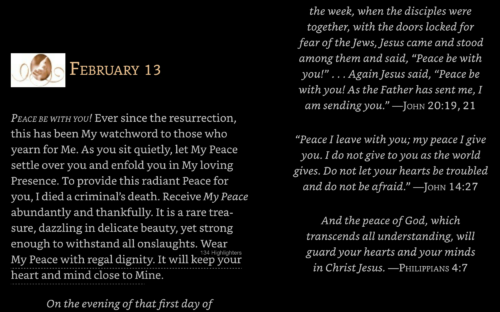A Life of Relationship
Richard Rohr speaks in his 1980 recorded series on the Hebrew prophets about the communal and social emphasis of their message:
What the prophet does is lead the Jewish religion into being a social experience…. The prophets keep Judaism social.
Much of modern religion is individualistic, spiritualized instead of social. Prophetic words only speak out of the context of peoplehood, out of the context of community. It’s a call to the covenant people to live the covenant and be the people of the covenant. To be faithful to the pledge that God has made to God’s people. For the most part, the prophets’ teaching is not individualistic; it’s social. Their understanding isn’t, “This is right for me; I must do this. My conscience tells me this.” Much more, they speak of our conscience. There’s a social conscience, what is right for the people. The prophets are convinced that what is right and good for the people as a whole will be right for the individual.
Ironically—and this will seem like a paradox—out of that sense of peoplehood, out of that sense of community comes a strong tradition of the importance of the individual. I know that sounds contradictory, but that’s exactly what happens. A true sense of community creates a strong sense of individual personhood…. True individuals create true community. And true community creates true individuals. They are not conflicting. Because we’ve so often experienced bad community and individualism instead of true personhood, we see them as somehow in conflict. The prophet does not. So the prophet’s sense of Judaism is of a social religion that calls hearers to peoplehood, to togetherness, to relatedness. Only in relatedness can we understand relatedness to God.
The life of the Spirit in the Hebrew Scriptures is largely a life of relationship. Those who can be in relationship can learn how to appropriately relate to the other, not just to the self. We’re caught right now in a very psychological age where we’re coming very close to defining salvation as self-realization, as therapeutic experience, as self-knowledge. It’s all an internal dialogue.
In fact, the life of the Spirit is a life of relatedness and relationship. The prophet leads us into that life of relationship to be in union with nature, the moment, the person, the prayer, the community. As soon as those moments of relationship are cut off, we cut off the possibility of community, and we cut off the possibility of being a people of any real depth. Certainly, we cut ourselves off from what I think the Jewish and Christian traditions offer us, which is a call to relatedness. God leads us further and further into that relatedness, into an experience of intimacy with that with which we are in relationship. Because of that experience of intimacy with the center, with God, with the Creator, with Life, gradually the scaffolding of fear and self-protection falls away. We’re hopefully finally able to be intimate with everything.
Mercy, Justice, and Walking Humbly
“You have been told, O mortal, what is good and what YHWH requires of you: to do justice, to love mercy, and to walk humbly with your God.” —Micah 6:8
Scholar and retreat leader Megan McKenna deepens our understanding of God’s desire for us through the prophet Micah. For McKenna, Micah’s simple and challenging verse reveals the essence of what the prophets are about:
According to God, this is life. This is the call of the prophets in a nutshell, the meat at the heart of their very existence. The words used are significant: “Do justice”—the Hebrew word mishpat means more than specific acts of justice. It defines God’s order in the world; it is the covenant guide for living in community; and it is the memory of God’s words and deeds past and present and the people’s response in gratitude toward one another. In a word it says, Be the Torah; do God’s justice; imitate God in your life.…
“Do justice” means to be faithful as God is faithful, holy as God is holy, to set those in bondage free, to hear compassionately the cries of those in slavery, to do for one’s neighbor what God has so graciously done for you. It is the teaching of the Torah, the source of abundant life. These two words—Do justice—point to the way of God and simply say: walk in it! Whatever the concept of justice might be, it is only by doing acts of justice, by solidly standing with those in need of justice, and by resisting injustice that justice can become a reality.
The second demand is “Love mercy” (or “Love tenderly”). The Hebrew word hesed, compassion, means coming to the rescue of the poor, the outcast, the alien, the slave, the powerless, hearing the cries of those in misery, giving love that is faithful, sustaining, enduring. It is the way God loves [God’s] people, and God’s people are to return that love by loving one another. This urgent command shoots right to the heart of every individual and to the community. [1]
Howard Thurman (1899–1981) asks what it means to walk humbly with God, the third of God’s requirements to Micah:
How do you walk humbly with God? How do you? How do you walk humbly with anybody?… [By] coming to grips with who I am, what I am as accurately and as fully as possible: a clear-eyed appraisal of myself. And in the light of the dignity of my own sense of being I walk with God step by step as [God] walks with me. This is I, with my weaknesses and my strength, with my abilities and my liabilities; this is I, a human being myself! And it is that that God salutes. So that the more I walk with God and God walks with me, the more I come into the full-orbed significance of who I am and what I am. That is to walk humbly with God. [2]
